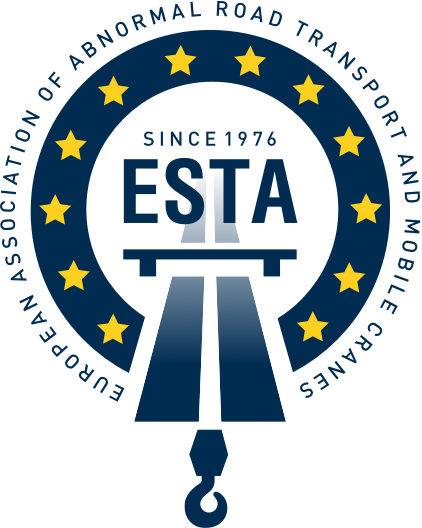IRU calls for wide-ranging road transport industry support
May 7, 2021: Germany lifts “high incidence region” restrictions for Poland, Hungary, Armenia and Montenegro
As of 9 May 2021, 00:00 hours, Poland, Hungary, Armenia and Montenegro will no longer be considered “high incidence areas” according to the German CoronaEinreiseVO.
These countries will revert to the status of “normal” risk areas again. As a result, a stay there will no longer entail any pre-registration and eventual testing obligations for truck drivers when entering Germany after a stay in one of these countries that took place as of 09 May 2021.
However, please take into account that due to the “10 days” deadline foreseen in the German CoronaEinreiseVO, sojourns in Poland, Hungary, Armenia and Montenegrothat took place up to and including 8 May 2021 (that’s to say, at a time when these countries still were considered high incidence areas) will continue to trigger pre-registration and eventual testing requirements for drivers entering Germany up to and including 18 May 2021.
Source: BGL
May 6, 2021: Germany adds Georgia to the list of “high incidence areas”
With effect from Sunday, 9 May 2021, 00:00 hours, Georgia will be considered “high incidence area” according to the German CoronaEinreiseVO.
A quick reminder on the relevant obligations on return/entry from “high incidence areas”:
Obligation to register:
For persons who have stayed in high incidence areas outside of Germany in the last 10 days prior to entry, there is an obligation to register via the website https://www.einreiseanmeldung.de. There is no exception to this registration requirement for truck drivers. However, there is an exception to the obligation to register (for all persons, i.e. also for truck drivers) if the high-incidence area was merely transited without a stay. If registration is mandatory but digital entry registration is not possible due to lack of technical equipment or technical malfunctions, a fully completed substitute notification according to the sample form (see https://www.bundesgesundheitsministerium.de/coronavirus-infos-reisende/merkblatt-dea.html for samples in many languages) must be carried on entry.
Obligation to test:
Persons who have stayed in a high-incidence area during the last 10 days before entry must undergo a COVID-19 test (PCR test or rapid test according to WHO criteria) before entering Germany and present it to the responsible authorities upon request. Truck drivers are exempt from this requirement for stays of less than 72 hours. For stays of more than 72 hours, drivers must undergo a COVID-19 test before entering Germany. (In response to the frequently asked question of what should be done if the 72-hour period is exceeded unplanned, we regularly receive the less than satisfactory information from the RKI that, to be on the safe side, the driver should carry out the test before entering the country if there is a risk of the 72-hour period being exceeded). Source: BGL
June 8, 2020: COVID-19 UPDATE #9 FOR IRU MEMBERS
EU
We agreed on five rules for efficient enforcement in the aftermath of COVID-19, published in a joint statement with enforcement organisations CORTE, ECR and RoadPol, as well as trade union organisation ETF.
The certificate for international professional drivers was included in the Schengen Handbook, to be used whenever internal borders are introduced, for example in case of another health crisis. This will give legal certainty and formal recognition to passenger and goods vehicle drivers, meaning they will not be required to provide new documents. Border control authorities will implement the certificate into their instruction manuals.
More than 2,500 drivers have downloaded the Galileo app to monitor green lane effectiveness at 80 internal EU border crossings in 25 countries. Thanks again to all members who helped test this valuable tool.
We are monitoring an expected decision today by the Council on further opening EU internal borders (beyond green lane border crossings) in an organised way, which will have an impact on road transport as well.
May 7, 2020: COVID-19 UPDATE #7 FOR IRU MEMBERS.
April 29, 2020: The International Road Transport Union (IRU) is calling on governments to ramp up efforts to support road transport operators so they can drive broader financial and social recovery. Road transport services underpin all economic activity, but goods transport operator revenues have declined by up to 40% during the COVID-19 crisis.
“All over the world, commercial road transport companies, including millions of small and medium-sized firms, are struggling” said Umberto de Pretto, IRU Secretary General. “Operator bankruptcies will put the recovery of an entire economy at risk.”
Full story is here
IRU COVID-19 recommendations
Video Message regarding COVID-19 by IRU Secretary General Umberto de Pretto
Recommendations for Freight Drivers COVID-19
The International Road Transport Union (IRU) has issued Recommendations for Freight Drivers during the COVID-19 situation. As we know our membership is trying to maintain their vital services while paying full attention for the health and safety of their personnel. In view of this, we share these IRU recommendations with you for the benefit of our members’ crane and transport companies and their drivers.
IRU COVID-19 recommendations
Video Message regarding COVID-19 by IRU Secretary General Umberto de Pretto
